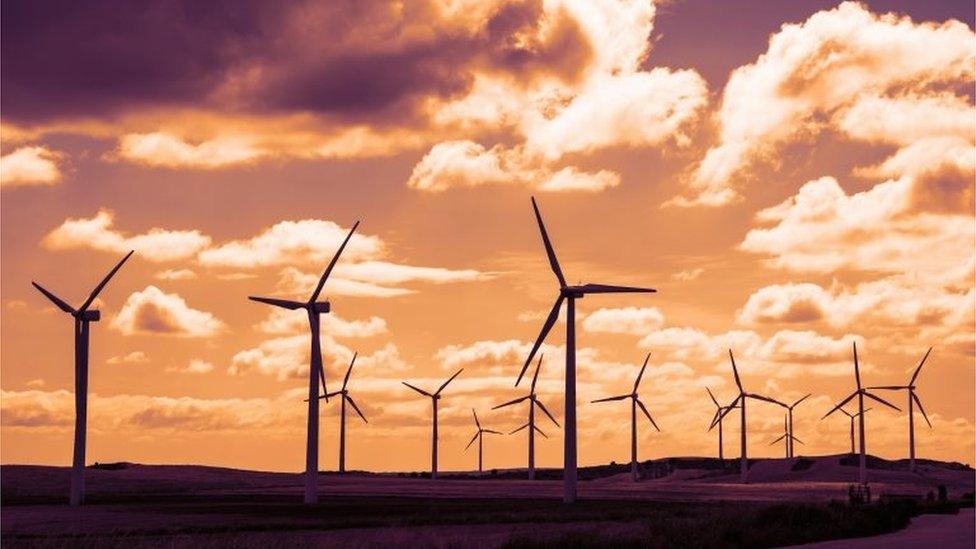Energy crisis: 'We need a system upgrade to get more renewables'
- Published
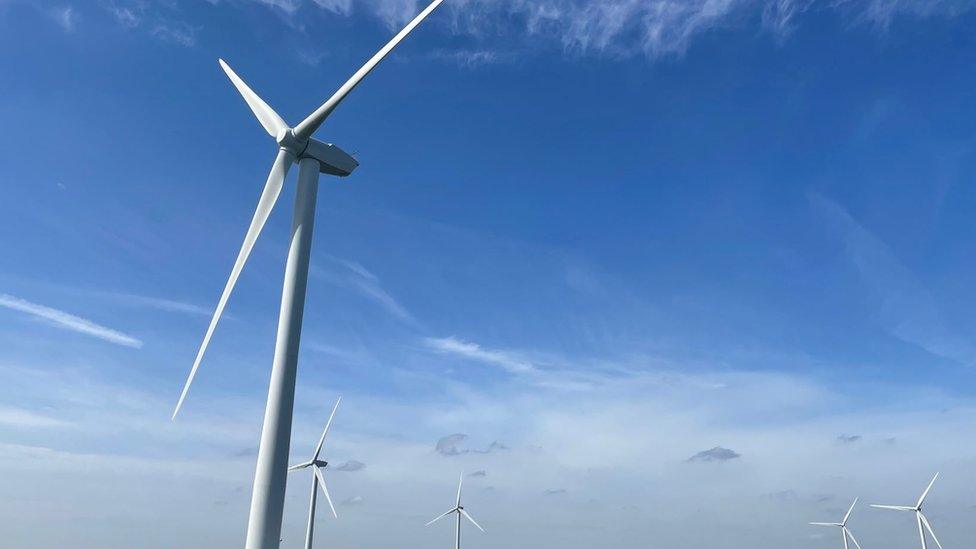
The government wants all electricity to come from clean energy sources by 2035
Energy bills are rising fast and are set to rise even further, with the war in Ukraine raising concerns about energy security, including the reliance on oil and gas.
As well as reducing carbon emissions, can renewables provide the solution and bring down costs while allowing the UK to generate its own energy?

'The government needs to take action'
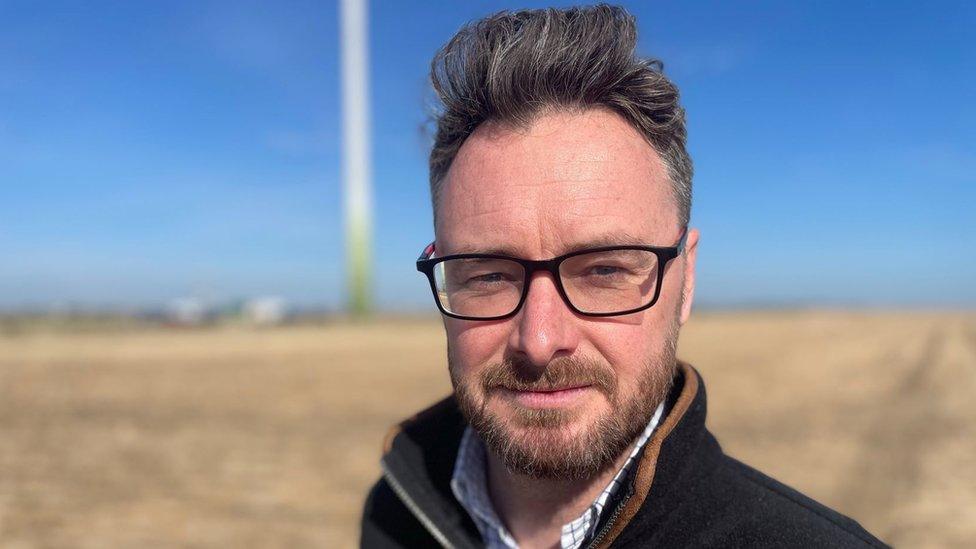
Investment is needed in the electricity network to help build more renewable sources, says Nick Sutton from the Abbey Group
Planning, red tape and grid capacity are the areas holding us back, according to Nick Sutton, joint managing director of renewables company The Abbey Group, based in Whittlesey in Cambridgeshire.
"Planning in the UK is extremely difficult - England more than Scotland and other places," he says.
"Getting grid connection for a turbine [or] solar farm is extremely difficult. The amount of upgrade work and the costs that are needed are very prohibitive."
The company, which project manages wind and solar farms, says the minimum timescale for the planning process of a new wind farm is six months, but it can take up to five years.
Connecting one new turbine at an existing wind farm would cost over a million pounds for a grid connection, says Mr Sutton.
"The whole system needs upgrading to get more renewable energy online, it needs government funding," he adds.

'The financial case is becoming stronger'

Installing solar panels has reduced the need for heating oil which has doubled in price, says Ross Holdgate
About a year and half ago Ross Holdgate installed 10 solar panels on the roof of his home in Barrington, in Cambridgeshire, in an attempt to use his oil heating system less.
"If we're making lots of electricity, we can use the electricity to heat up our water instead of using the oil boiler in the normal way," he says.
Now the days are getting longer, he hopes he will be making quite a lot of his own electricity and also selling some back.
"It feels good in a number of ways. Our initial reason for doing this was to try and reduce our carbon footprint.
"So as a household it feels like we've taken quite a big step to doing that. The financial case for doing it is becoming stronger all the time."
It cost him about £5,000 to get the panels installed which he hopes will be paid back in savings in about 10 years.
Mr Holdgate has changed some habits to use energy when the solar panels are producing electricity, such as running the dishwasher or washing machine during the day, or using the oven at lunchtime rather than in the evening.
"I think it's just a good feeling that you're able to do something positive to improve your situation and feels like we're moving in the right direction," he adds.

How much electricity is generated by renewables?
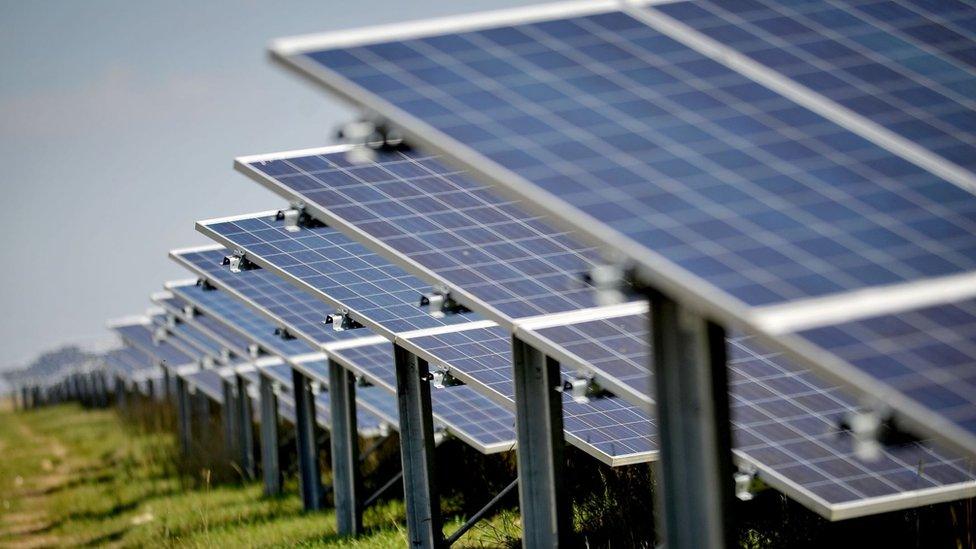
Solar energy produces less electricity than wind but more than coal in most months
The amount of energy produced by solar and wind turbines fluctuates depending on the weather, the time of year, and the time of day.
According to the National Grid Electricity System Operator (ESO) last Easter was the "greenest ever".
On Easter Monday 2021 wind power made up 39% of the energy mix, with solar at 21%.
National Grid data shows in February 39.7% of electricity generated came from wind, helped in part by several storms, while solar accounted for 2.2%
In comparison, nuclear provided 14.4% of electricity, and fossil fuels almost 25%, which mostly came from gas.
But in August last year wind produced 18% of electricity, solar 6%, and gas 36%.
Source: National Grid ESO, external

'Change to renewables is not going to happen overnight'

Insulating homes would be one way to cut energy usage and reliance on oil and gas, Eliot Whittington says
Eliot Whittington from the Cambridge Institute for Sustainability Leadership, external at the University of Cambridge says "we've seen a real stop-start from the government" over energy-saving and renewable electricity.
He says the UK has a great track record of success, particularly with offshore wind, but successive governments had changed policies over incentives for things like home insulation and planning for onshore wind farms.
"It means we don't get a level of take up we want, what we need is good strong consistent signals from government that people and business can follow through on," he says.
Mr Whittington says that does not mean local residents should not have a say on new wind and solar farms but "there is a strong case to say our planning regulations could make decisions more quickly".
He says moving to more sustainable and secure energy sources is not going to happen overnight.
"We've got to get through a tough couple of years and the government should help the most vulnerable, but just being more efficient in how we use energy will keep bills under control and help manage our way through this crisis " he adds.

'Government considering all options'
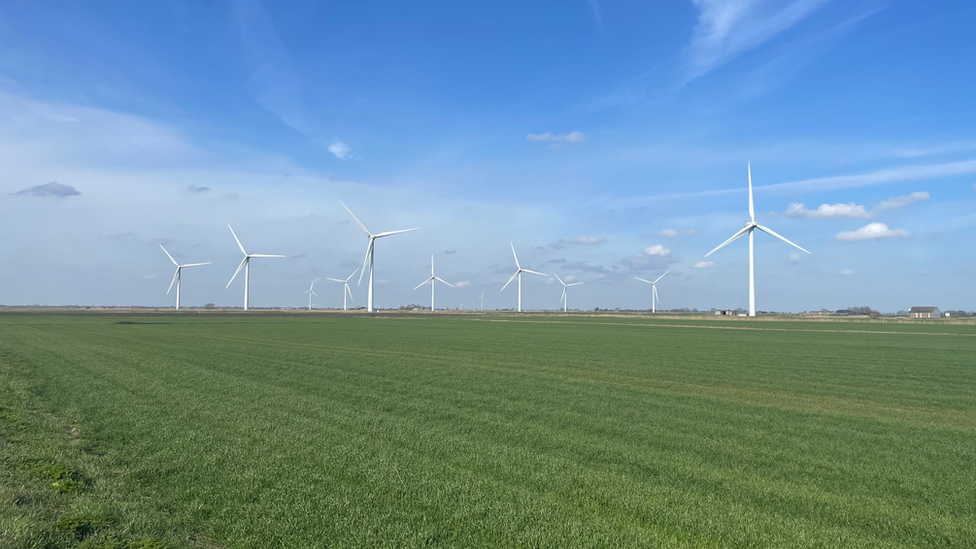
Wind and solar farms can prove controversial with residents and face challenges in the planning stage
A government spokesman said: "In light of Russia's unjustified invasion of Ukraine, it's right that we move away from dependence on Russian energy, increase our self-reliance and diversify supply.
"There has been no delay. We are considering all our options and we'll set out an energy security strategy which will supercharge our renewable energy and nuclear capacity, while supporting our North Sea oil and gas industry."
UK Power Networks which distributes electricity in the East of England said its "priority is connecting as many projects as efficiently as possible and we have a strong track record of doing this".
It said in a statement it was working with the National Grid to "facilitate new generation connections in the East of England".
"We will continue to work closely with developers of new generation sites across the East of England to understand their future needs," it added.
A spokesman for National Grid said it was "bringing forward 16 major projects across our network by 2030 to facilitate the government's target of 40GW of offshore wind power - a £10bn investment".
It said those projects included four in East Anglia.

Find BBC News: East of England on Facebook, external, Instagram, external and Twitter, external. If you have a story suggestion email eastofenglandnews@bbc.co.uk, external
- Published16 March 2022
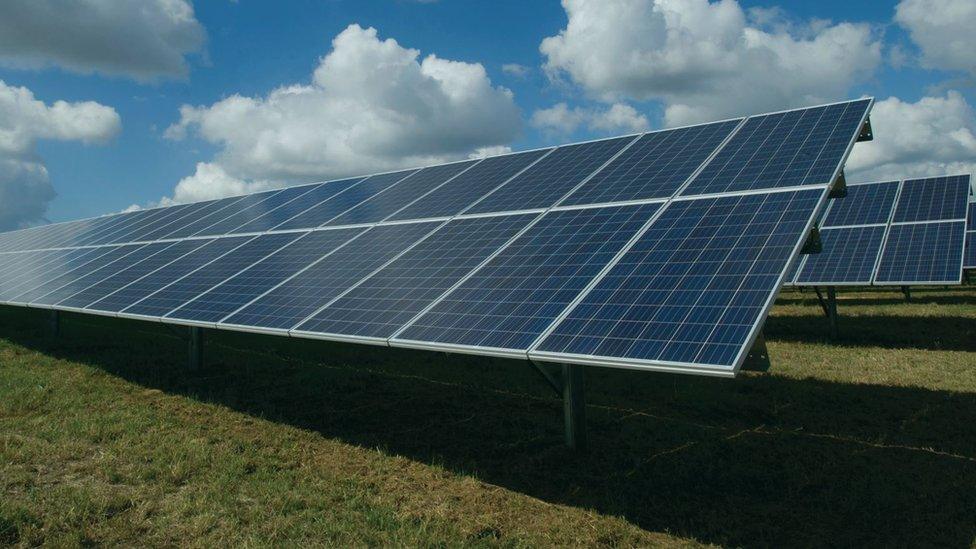
- Published12 March 2022
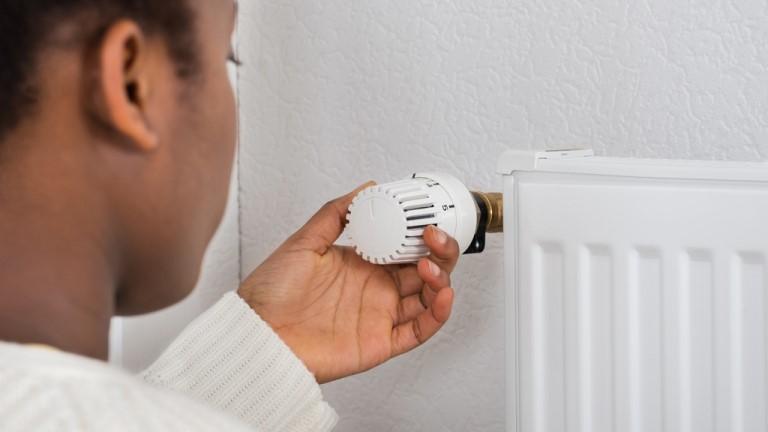
- Published11 March 2022
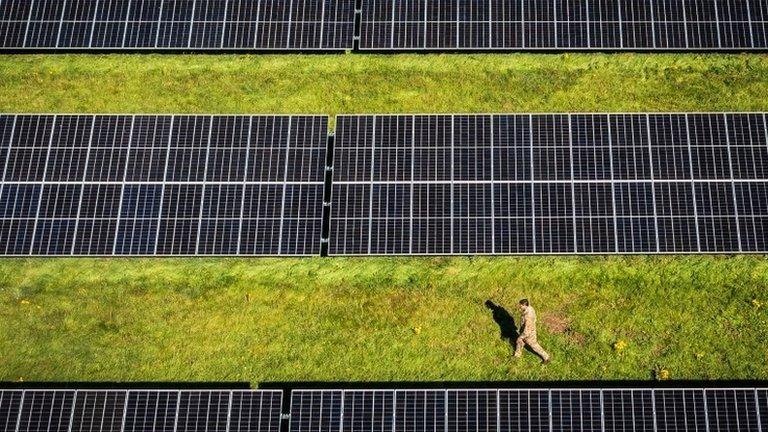
- Published4 October 2021
